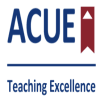In late February, 2U filed for an IPO worth as much as $100 million. The online learning company's IPO could be the biggest in the ed tech sector thus far and follows the New York Stock Exchange debut of Chegg in November, the same month ed publisher Houghton Mifflin Harcourt also filed for IPO.
If a successful startup isn't acquired, odds are it will file for IPO sooner or later — likely in a bid to finance further expansion of its offerings. While 2U has yet to announce how many shares will be offered or a price range, one thing is certain. Once it begins listing on the NASDAQ under "TWOU," those watching the space will resume speculating, if they haven't already, on which ed tech startup will be the next to go public.
Coursera or Udacity
Of the "big three" MOOC providers (edX, Coursera, and Udacity), two are for-profit companies that could, conceivably, file for an IPO. Last July, in an interview with Forbes, Coursera co-founder Daphne Koller stated that an IPO was inevitable. Investors ultimately want a return, and Coursera currently has no intention to sell itself to another education company. Its revenue from signature track courses continues to grow, as does its user base.
Going public is also probably inevitable for Udacity, co-founded and helmed by self-driving car inventor and Google Glass project lead Sebastian Thrun. With a high-profile setback last year with San Jose State University and a (thus far) successful online computer science program with Georgia Tech, Thrun announced plans to shift the company toward vocational learning with paid courses. This could place it even closer to an IPO than Coursera. In such a case, it would be interesting to see how Udacity would then differentiate itself from for-profit education companies that have seen federal scrutiny and diminishing enrollments in recent years.
The Minerva Project
Snapfish CEO Ben Nelson set out to create an elite online university when he founded The Minerva Project. Ideally, he wants it to attract the students who can't get into the Harvards of the world due to their low acceptance rates. Sitting on Minerva's board are former university presidents like Harvard's Larry Summers and New School's Bob Kerrey, and Nelson imagines a model where students live in and take classes from "dorm clusters" worldwide, but can it truly match the quality and prestige of the Ivy League to become the elite for-profit? And can the administrative costs of such a model remain manageable?
That remains to be seen, but $25 million was raised from Benchmark in 2012 and current plans call for more money to be raised in late 2014, according to a story by Inside Higher Ed last year. That same story noted that the online for-profit had only enough funding to last through 2015 and that it still needs accreditation and more funds to open at all. Its first students will start classes this fall in San Francisco (with tuition waived) and will then spend the next six semesters in six different countries, presumably in the aforementioned dorm clusters.
Nelson quotes like, "We never talked about when we'll exit, how we'll exit, when we'll IPO, things like that," have fueled speculation of a potential public offering, but that is probably still a ways off — if it happens at all. The scrutiny of for-profit online education might make the market slow to warm to another school in the space, even an elite alternative with a novel model. Though the scholars Minerva is attracting could be the key to success.
Instructure
Heavy buzz about a potential IPO by the company behind the open-source Canvas LMS circulated online last summer. That speculation was furthered by a $30-million round of Series D financing that brought its total amount of funds raised to $50 million.
Instructure was founded in 2008, launched its LMS in 2011, and has made headlines on several occasions for MOOCs like UC-Irvine's "Society, Science, Survival: Lessons from AMC's The Walking Dead" offered through the platform. Over 600 U.S. colleges and universities use Canvas, and the company's partners include publishing giants like Pearson and McGraw-Hill Education.
The LMS market is estimated to be worth $1 billion, but despite the heavy buzz, it's worth taking into consideration that Instructure competitors like Blackboard and Desire2Learn debuted in the late '90s and are still private. A public offering by any of the players in this lucrative space could possibly lead the competition to follow suit — for better or worse for all companies involved.
Would you like to see more education news like this in your inbox on a daily basis? Subscribe to our Education Dive email newsletter! You may also want to read Education Dive's look at how high fees could impact application rates.





















